In the swinging decade of the 1960s, a revolution was underway. The miniskirt, an audacious and provocative garment, burst onto the fashion scene, captivating women and challenging societal norms.
With its hemline daringly rising above the knee, the miniskirt became a symbol of liberation, individuality, and feminine rebellion.
This iconic fashion statement not only reshaped the wardrobes of women across the globe but also played a pivotal role in sparking a cultural revolution.

The birth of the miniskirt is often attributed to the innovative British fashion designer Mary Quant. In the mid-1960s, Quant introduced a daringly short skirt that revolutionized the fashion industry.
She sought to challenge the prevailing conservative styles of the time, which primarily featured knee-length or longer skirts.
Quant’s miniskirt, measuring several inches above the knee, was a bold departure from tradition, reflecting the spirit of a generation eager for change.
The miniskirt’s popularity soared as it captured the zeitgeist of the Swinging Sixties. It was a reflection of the evolving attitudes towards gender roles, 𝑠e𝑥ual liberation, and women’s empowerment.
The rise of feminism and the women’s rights movement played a significant role in the acceptance and adoption of the miniskirt as a symbol of female independence and agency.
It challenged the idea that women should conform to societal expectations and provided them with a newfound sense of freedom in expressing their personal style.
 In August 1961, Life published a photograph of two Seattle students at the University of Hawaiʻi wearing above-the-knee garments called “kookie-muus”, and noted a “current teen-age fad for short skirts” that was pushing hemlines well above the knee.
In August 1961, Life published a photograph of two Seattle students at the University of Hawaiʻi wearing above-the-knee garments called “kookie-muus”, and noted a “current teen-age fad for short skirts” that was pushing hemlines well above the knee.
The article also showed young fashionable girls in San Francisco wearing hemlines “just above the kneecap” and students at Vanderbilt University wearing “knee ticklers” ending three inches above their knee to play golf in, while the caption commented that such short skirts were selling well in the South, and that “some Atlanta girls” were cutting old skirts to “thigh high” lengths.
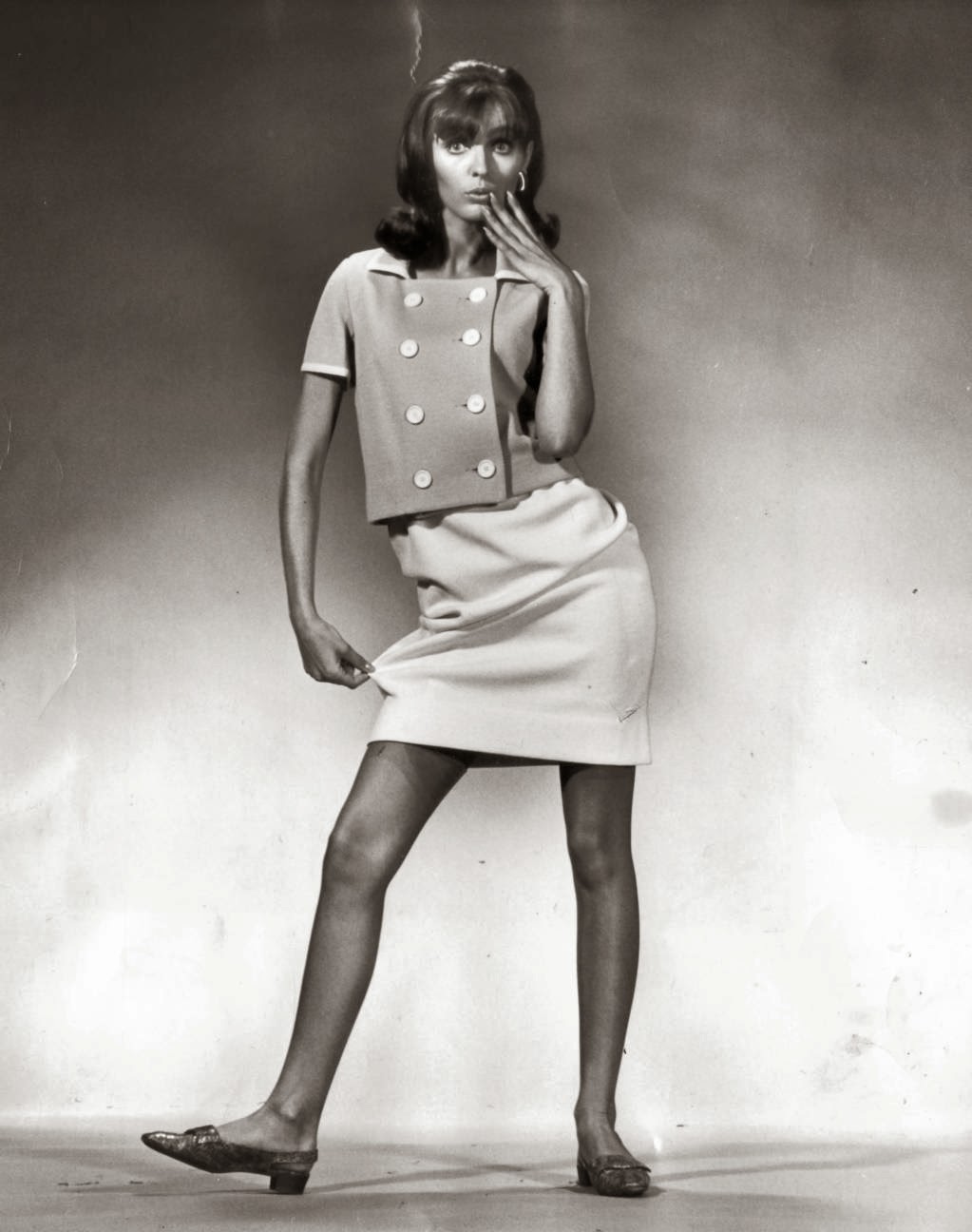.jpg)
“Eight inches above the knee? O, No, skirts couldn’t be that short…or could they?” — Tribune archive photo, June 18, 1965. (via Chicago Tribune)
Extremely short skirts, some as much as eight inches above the knee, were observed in Britain in the summer of 1962.
The young women who wore these short skirts were called “Ya-Ya girls”, a term derived from “yeah, yeah” which was a popular catcall at the time.
One retailer noted that the fashion for layered net crinoline petticoats raised the hems of short skirts even higher.
The standard hemline for public and designer garments in the early sixties was mid-knee, just covering the knee. It would gradually climb upward over the next few years, fully baring the knees of mainstream models in 1964, when both André Courrèges and Mary Quant showed above-the-knee lengths.
.jpg)
“Two London birds wear Christian Dior’s striped suits, short and narrow, with emphasis on the hips. Suit at left is navy and white pin stripes, with navy blouse, pleated culottes, and horizontally striped tie. The cardigan version is in red and white stripes with scarlet socks and blouse.” — UPI, May 12, 1966. (via Chicago Tribune)
The following year, skirts continued to rise as British miniskirts were officially introduced to the US in a New York show whose models’ thigh-high skirts stopped traffic.
By 1966, many designs had the hem at the upper thigh. Stockings with suspenders (American English: “garters”) were not considered practical with miniskirts and were replaced with colored tights.
Legs could also be covered with knee-high socks or various heights of boots, lower-calf height in 1964–65, knee-heights throughout the period, over-the-knee and thigh-high boots more 1967–69, and even boot-hose or body boots, tights incorporating a shoe sole and heel to form a waist-high boot, often in stretch vinyl.
Sandal straps or laces might crisscross or otherwise rise up the leg, even as high as the thigh, and body paints were offered for a time to add color to the leg in more individualized ways than wearing tights.
Towards the end of the 1960s, an even shorter version, called the microskirt or micro-mini, emerged.
.jpg)
“Tiffeau’s sweater dress.” On the runway in New York. Recognize Lauren Hutton? — Tribune archive photo, July 7, 1966. (via Chicago Tribune)
Several designers have been credited with the invention of the 1960s miniskirt, most significantly the London-based designer Mary Quant and the Parisian André Courrèges.
Although Quant reportedly named the skirt after her favorite make of car, the Mini, there is no consensus as to who designed it first.
Valerie Steele has noted that the claim that Quant was first is more convincingly supported by evidence than the equivalent Courrèges claim.
However, the contemporary fashion journalist Marit Allen, who edited the influential “Young Ideas” pages for UK Vogue, firmly stated that the British designer John Bates was the first to offer fashionable miniskirts.
Other designers, including Pierre Cardin and Yves Saint Laurent, had also been raising hemlines at the same time.
.jpg)
“Bolder than ever conception of a total look comes from Yves St. Laurent, youngest member of the Paris couture. He’s extended the red, white and blue chromatic scheme in this sweater dress with zigzags of the three colors. Argyle wool stockings combine muted blue and red; white leather cap with attached snood of black beaver has brass buckle, as do patent leather, chunky-heeled shoes. Model is Carol Robins of Aquinas Dominican High school.” — Tribune archive photo, Sept. 10, 1966. (via Chicago Tribune)
As with any significant cultural shift, the miniskirt was not without its controversies. Critics argued that the miniskirt was inappropriate, indecent, and objectifying to women.
It ignited debates around modesty, morality, and societal norms. However, its advocates firmly believed that the miniskirt was a form of self-expression and a rejection of oppressive norms, embracing the freedom to choose how one dresses.
The legacy of the miniskirt extends far beyond the 1960s. Its impact can still be felt in contemporary fashion.
The miniskirt paved the way for further liberation in women’s clothing choices, inspiring subsequent generations of designers and fashion enthusiasts to explore new possibilities.
Its influence can be seen in the diverse range of hemlines, silhouettes, and styles that continue to grace runways and streets around the world.
.jpg)
“SLEEK CHIC NEW YORK: Chic is the word for this zippy, young shift modeled by actress Joey Heatherton. The short dress with its surge of electric stripes and leather trim is one of the “Leather Girls” designed by Don Simonelli for Mia’s fall collection.” — UPI, Sept. 19, 1966. (via Chicago Tribune)
.jpg)
“Venetian lace is used for this pair. Pam Kimmell, left, Wheaton high school, wears a short dress of turquoise and white lawn ($35), trimmed with giant bow and cut-outs at hemline. Teri’s blue on white plaid cotton skimmer ($22.95) features wide band of lace and narrower lace edging at hem.” — Earl Gustie, Chicago Tribune, Nov. 3, 1966. (via Chicago Tribune)
.jpg)
“Dressed in British designer Paul Blanche’s “Raingear,” a flared hipster miniskirt and Ike jacket, model Lorna McDonaugh brightens the scene at the plaza at 59th St. Such outfits could make rainy days popular.” — UPI Telephoto, Nov. 9, 1966. (via Chicago Tribune)
.jpg)
“Gayle Kirkpatrick of Atelier uses tiger-stenciled calf for a sliplike discotheque dress secured with jeweled straps. At the Horse of a Different Color shop.” — Tribune archive photo,, Nov. 14, 1966. (via Chicago Tribune)
.jpg)
“Mary Quant, the leggy, 𝑠e𝑥y London fashion designer, was her own best model for the miniskirts that dressed the decade.” Quant named the brief skirt mini after her favorite car, the Mini Cooper. — UPI, Oct. 21, 1967. (via Chicago Tribune)
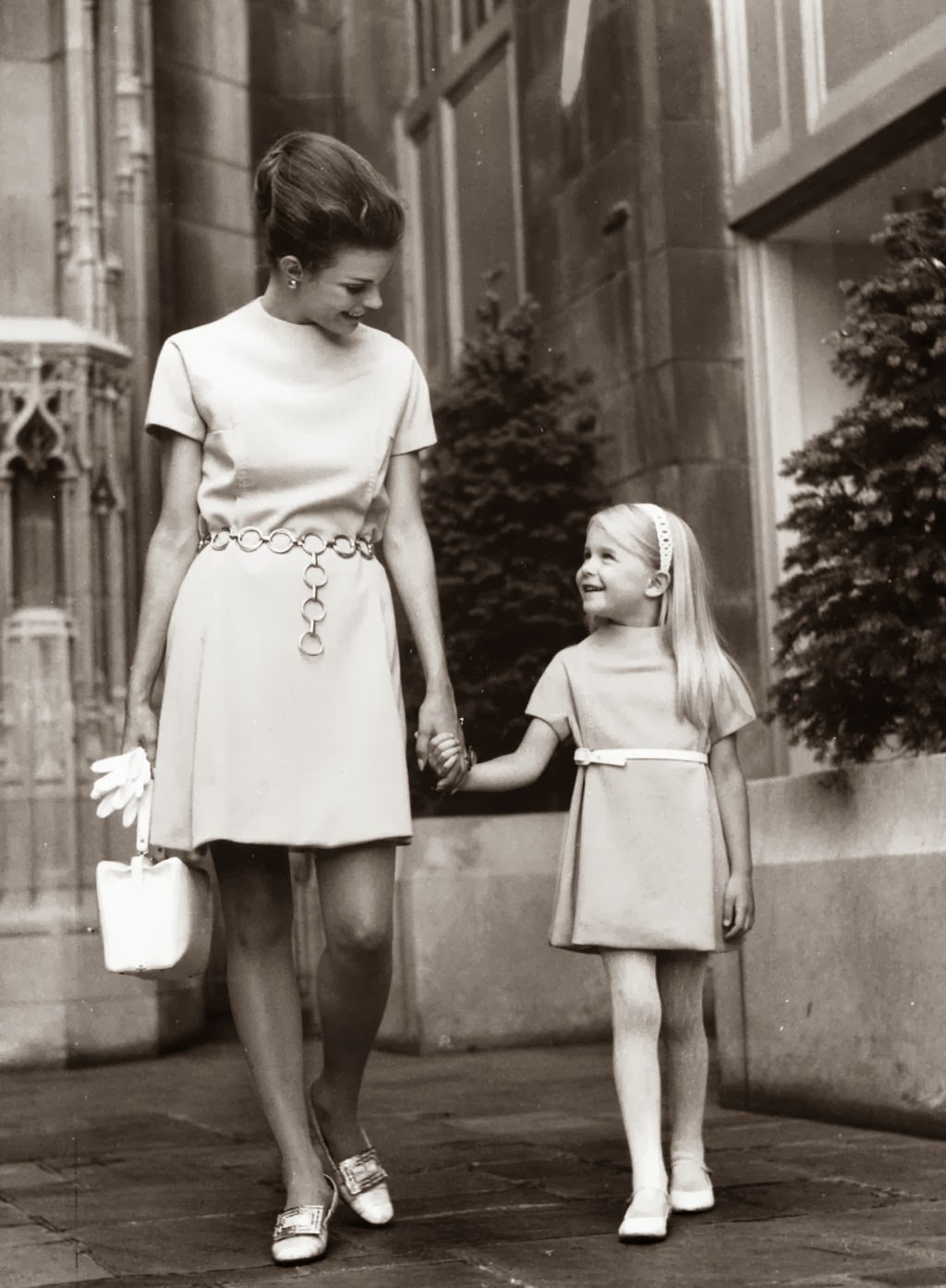.jpg)
“Mother chose not to accent an empire waist in her dress No. 8383, instead used a smart chain belt at the normal waistline. Daughter’s dress, identically styled, is made from pattern No. 8384.” — Earl Gustie, Chicago Tribune, July 17, 1968. (via Chicago Tribune)
.jpg)
“Chic in a Mini, young lady unwraps her lunch to delight of the males.” — Jack Mulcahy, Chicago Tribune.(via Chicago Tribune)
.jpg)
“A windswept rainy fall day in Chicago, but fashion prevails come wind or high water. Only the maxi-coat seems to offer protection from the elements, but the attention of girl-watchers makes the mini the choice of most young women.” — Jack Mulcahy, Chicago Tribune, Nov. 3, 1969. (via Chicago Tribune)
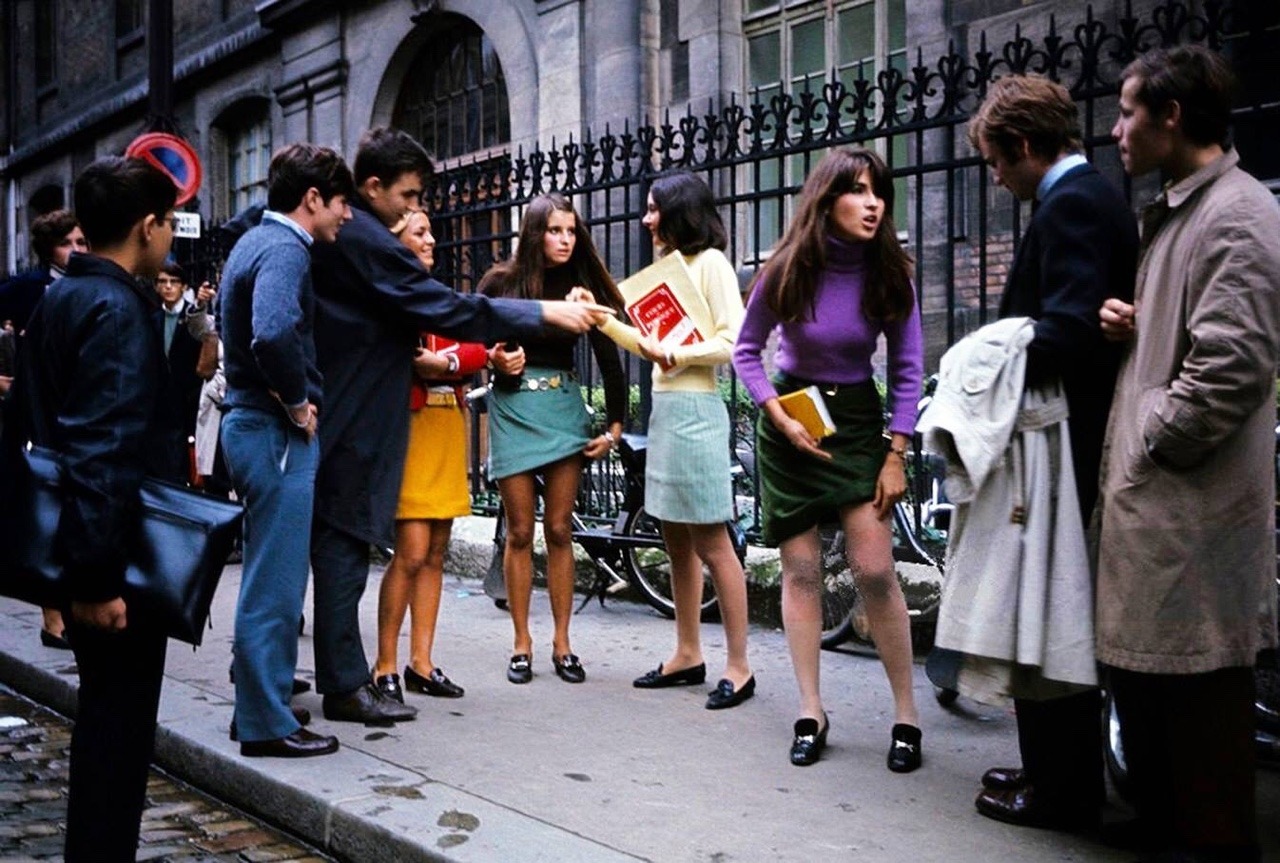
Miniskirts in Paris in the mid-1960s. (Photo by Paris Match archive).
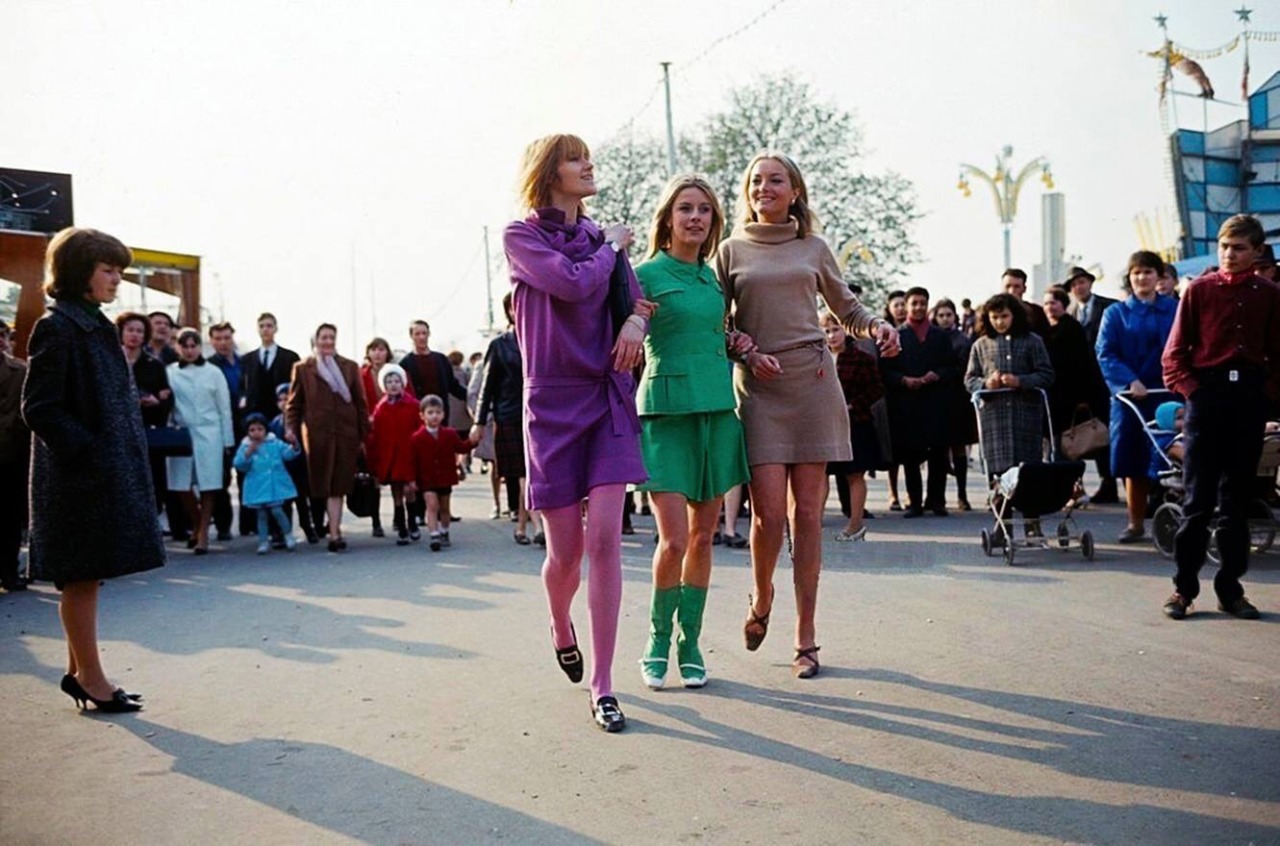
Miniskirts in Paris in the mid-1960s. (Photo by Paris Match archive).
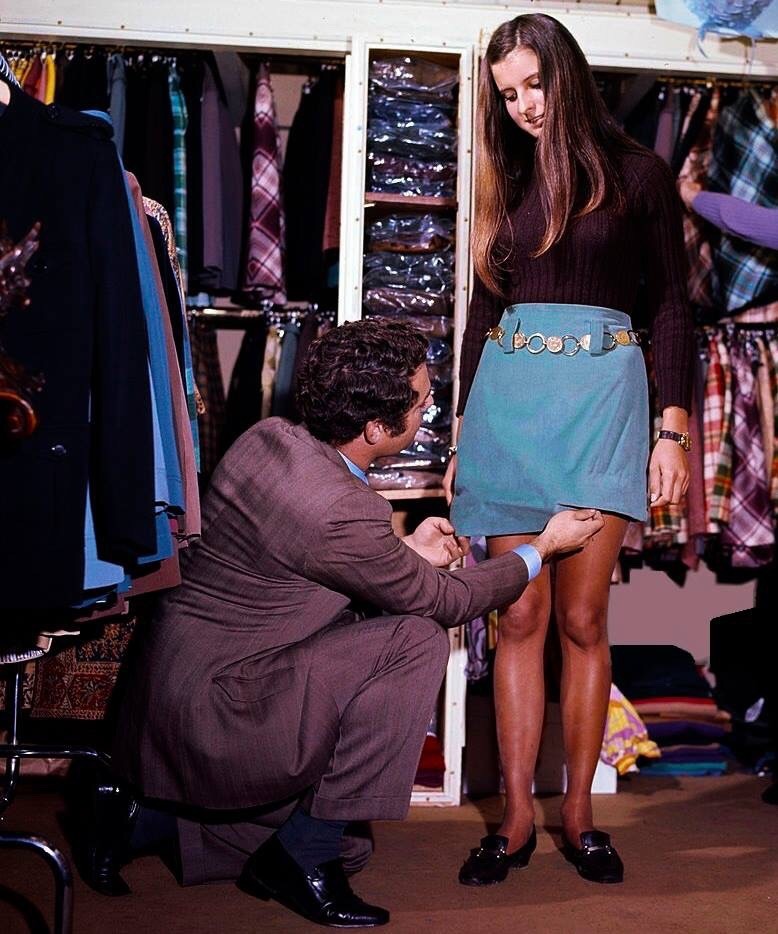
Miniskirts in Paris in the mid-1960s. (Photo by Paris Match archive).
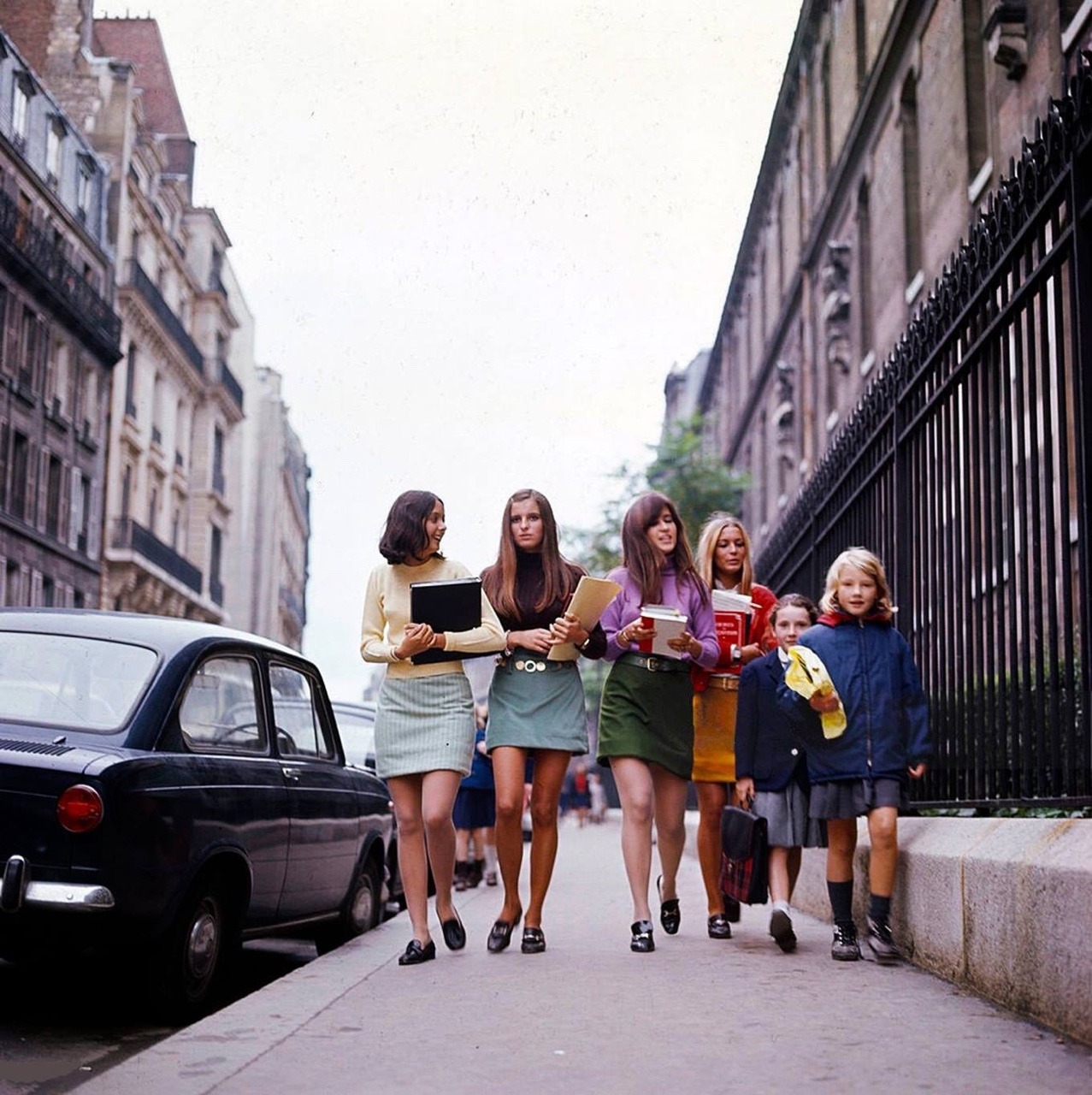
Miniskirts in Paris in the mid-1960s. (Photo by Paris Match archive).

Miniskirts in Paris in the mid-1960s. (Photo by Paris Match archive).

Miniskirts in Paris in the mid-1960s. (Photo by Paris Match archive).

Miniskirts in Paris in the mid-1960s. (Photo by Paris Match archive).
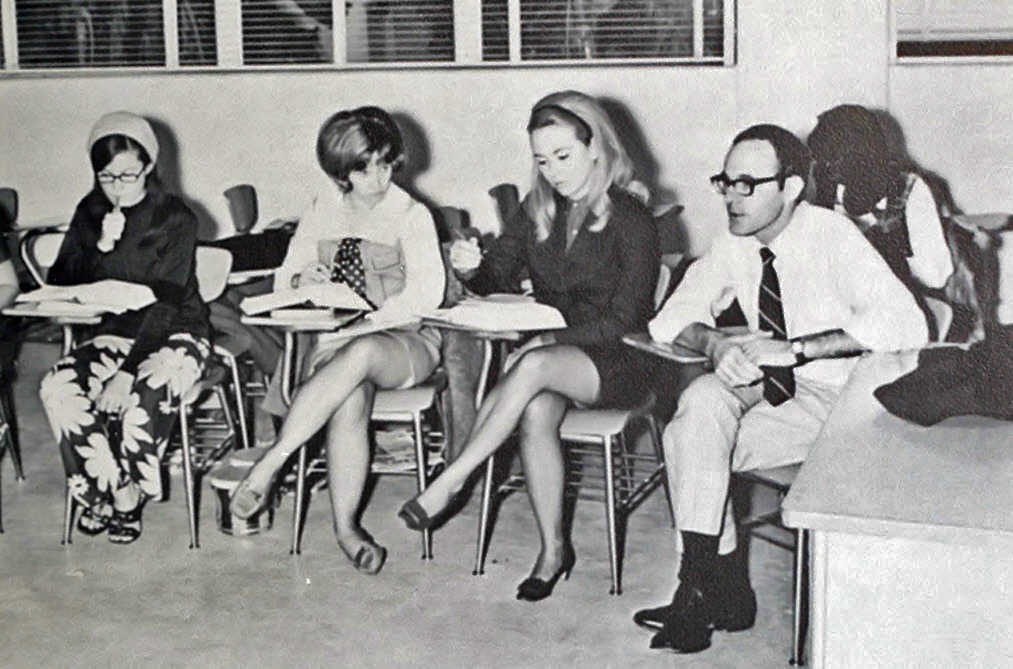.jpg)
.jpg)
.jpg)
.jpg)
.jpg)
.jpg)
.jpg)
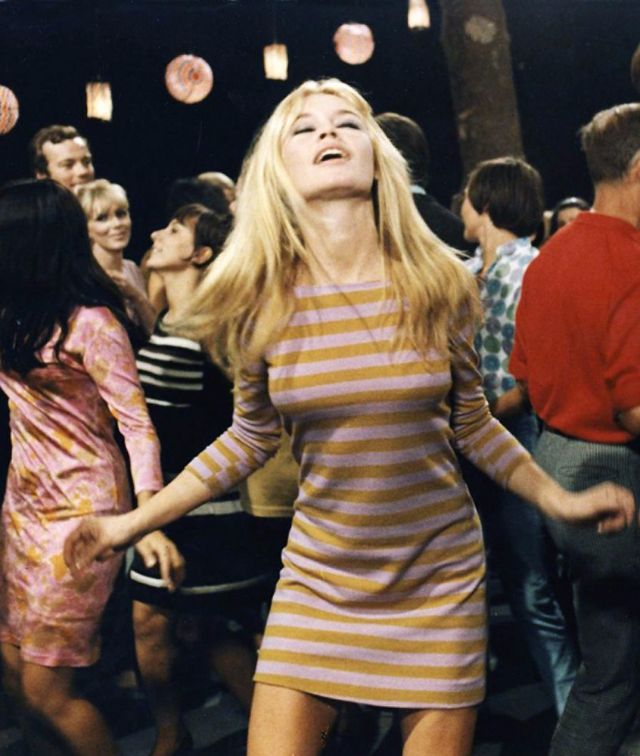
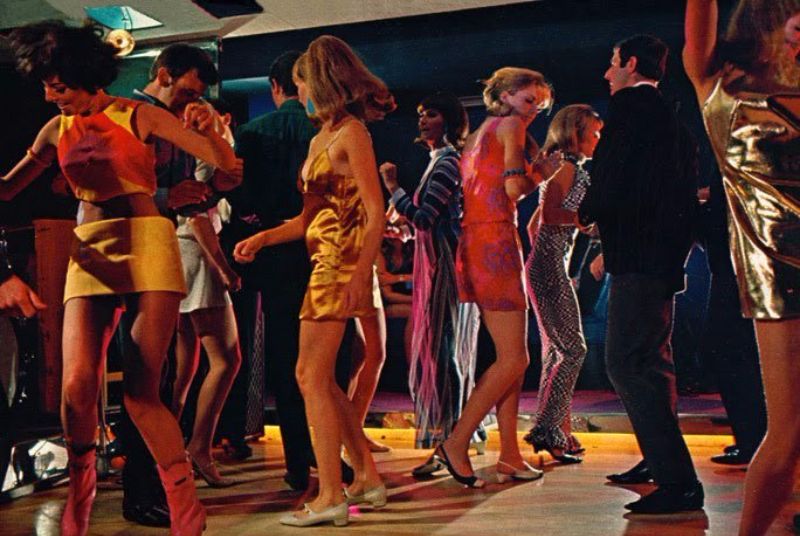

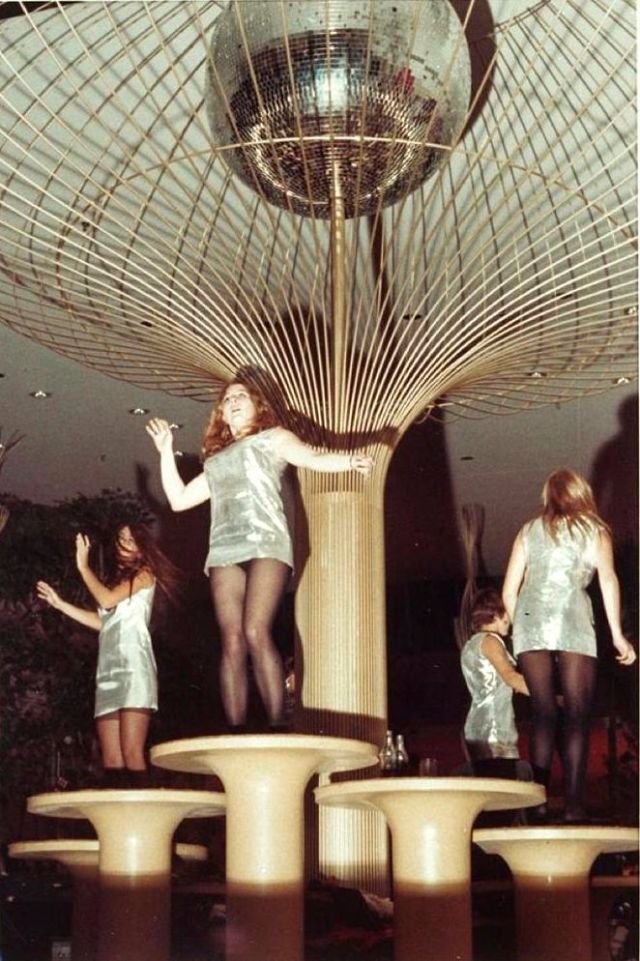


.jpg)
.jpg)
.jpg)
.jpg)
.jpg)
.jpg)

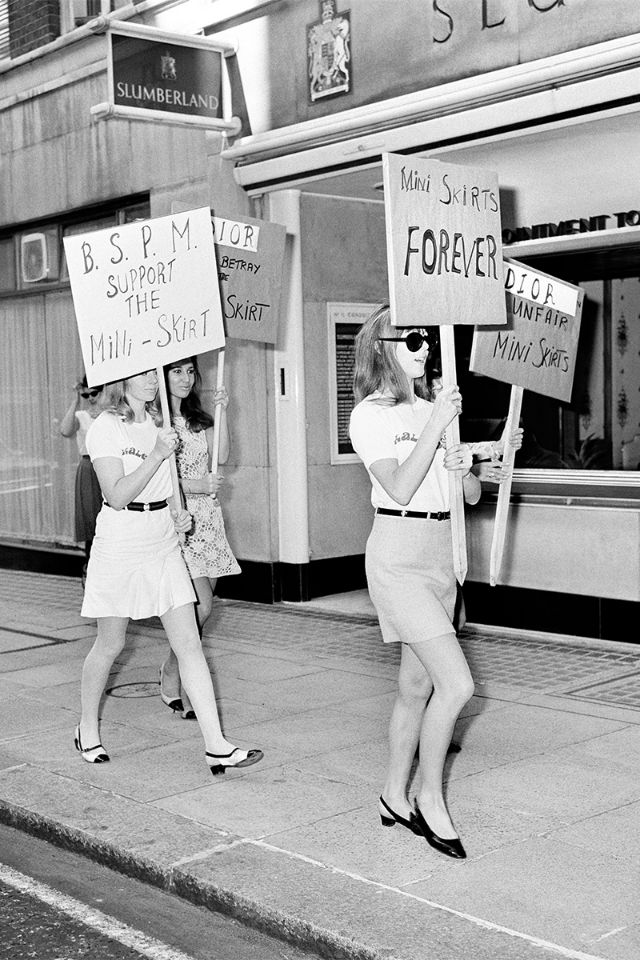
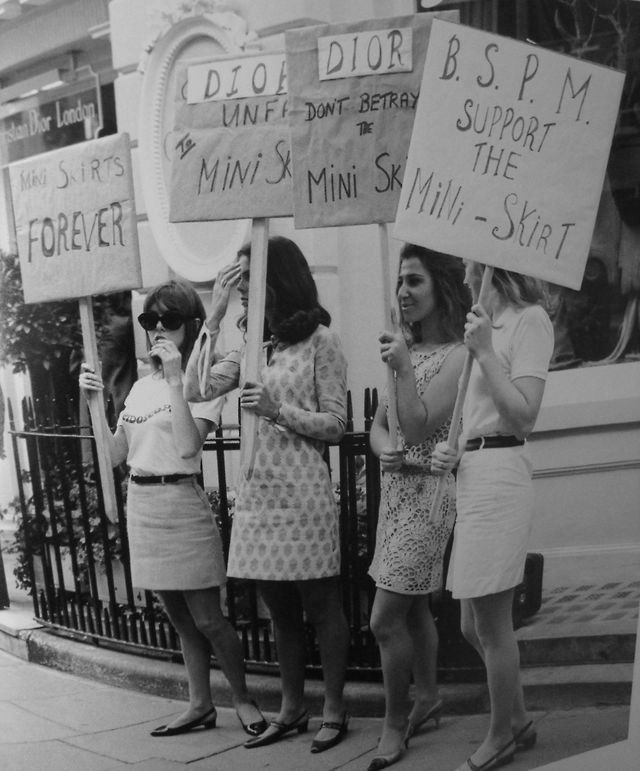
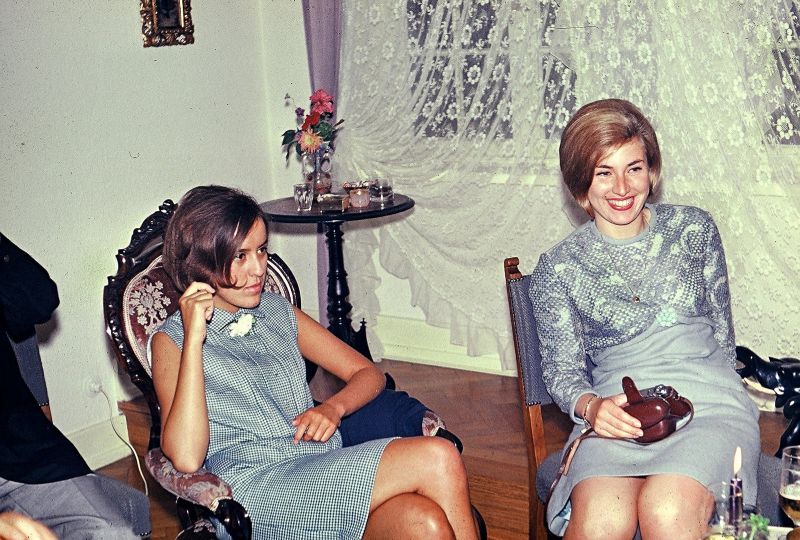


(Photo credit: Pinterest / Flickr / Wikimedia Commons).





